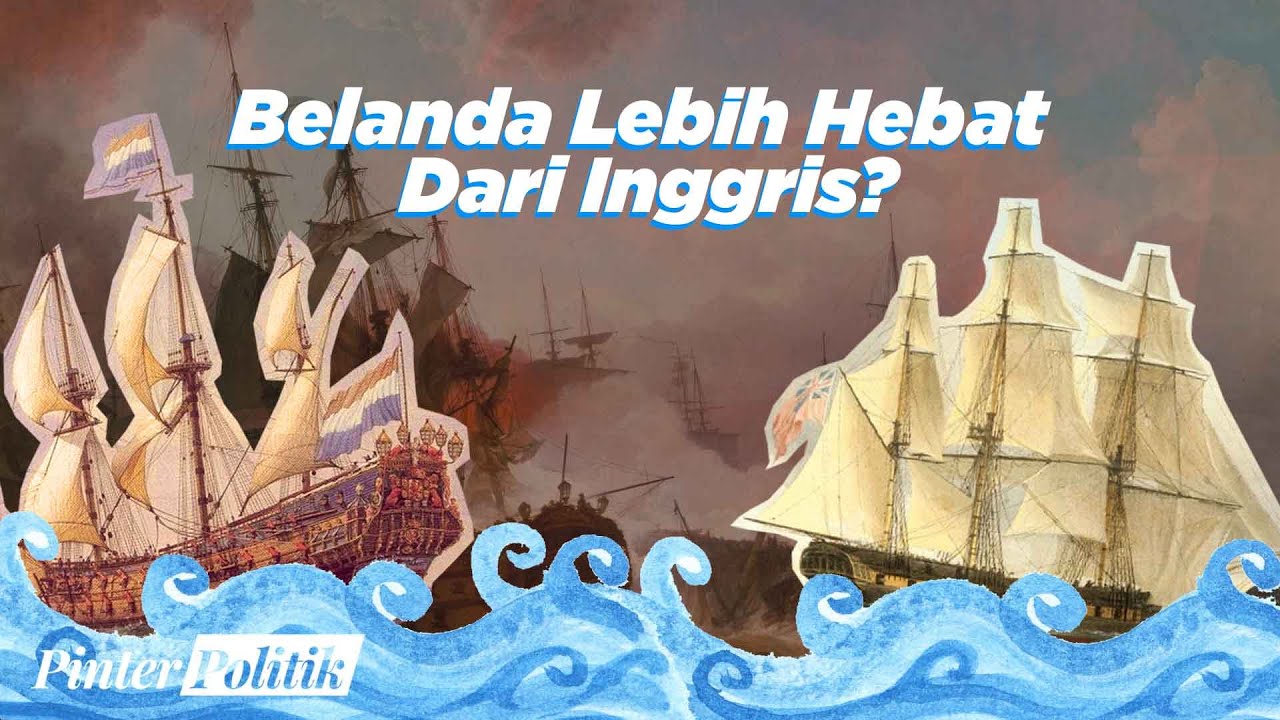Perjuangan Meraih Kemerdekaan: Indonesia di Mata Belanda (Part 1)
Summary
TLDRThis video explores the tumultuous relationship between Indonesia and the Netherlands during the colonial era, focusing on the aftermath of World War II. The script recounts how the Netherlands, once a colonial power, was forced to confront the loss of its prized colony, the Dutch East Indies, after WWII. Despite the Netherlands' struggle to regain control, they faced fierce resistance from Indonesian nationalists, particularly during the Battle of Surabaya in 1945. The video delves into the challenges faced by both the Dutch and Indonesian forces, highlighting the conflict and the Dutch effort to reassert dominance over their former colony.
Takeaways
- 😀 The speaker expresses a strong interest in history, particularly the theme of colonialism.
- 😀 The relationship between Indonesia and the Netherlands during the colonial era is a key focus, especially in the context of the Dutch East Indies.
- 😀 The phrase 'Hindia is gone, disaster comes' reflects the Dutch belief that losing the Indies would bring catastrophe.
- 😀 During World War II, the Netherlands was occupied by Nazi Germany, and the Dutch East Indies was taken over by the Japanese Empire.
- 😀 The Dutch were determined to regain control over the Indies after WWII, viewing it as an invaluable colony.
- 😀 After Germany's surrender, the Netherlands shifted focus to its colonies, trying to regain control of the Indies, despite challenges.
- 😀 The Netherlands' military response to regain the Indies was stunted by a lack of soldiers, many of whom were in Japanese prison camps.
- 😀 The Allies expected the people of the Indies to welcome the Dutch back, but instead encountered resistance from armed Republican groups.
- 😀 A significant battle occurred in Surabaya on 10 November 1945, remembered as 'Heroes' Day' in Indonesia, where the Indonesian forces opposed colonial powers.
- 😀 The British, tasked with assisting the Dutch, were reluctant to fight and eventually decided to be passive in the face of resistance from Indonesian nationalists.
Q & A
What was the most interesting lesson in school according to the narrator?
-The narrator found history to be the most interesting lesson in school, particularly the theme of colonialism.
Why is the relationship between Indonesia and the Netherlands considered interesting?
-The relationship is interesting because of the colonial history, with the Netherlands seeing Indonesia (formerly the Dutch East Indies) as a valuable colony, which led to various historical events and conflicts.
What is the significance of the phrase 'Hindia is gone, disaster comes'?
-The phrase highlights the importance of Indonesia as a colony to the Netherlands. It was believed that losing Indonesia would lead to disaster for the Netherlands, and the phrase later proved to be true as the country faced several challenges during WWII.
What major event happened in 1940 that affected the Netherlands?
-In 1940, the Netherlands fell to Nazi Germany during World War II, which significantly impacted their ability to control their colonies.
What happened to the Dutch East Indies in 1942?
-In 1942, the Dutch East Indies (now Indonesia) fell to the Japanese Empire during World War II.
How did the Netherlands react after being freed from Nazi Germany?
-Instead of focusing on rebuilding their own country, the Netherlands focused on regaining control of the Dutch East Indies, showing how valuable they considered the colony.
What was the significance of the Battle of Surabaya in 1945?
-The Battle of Surabaya, fought on 10 November 1945, was a significant event during Indonesia's struggle for independence. It is now commemorated as Heroes' Day in Indonesia.
Why did the British military eventually decide to be passive in the Indies?
-The British military became passive because they did not want to become involved in the conflict between the Netherlands and Indonesia. Their primary goal was to avoid further casualties and leave the Indies as soon as possible.
Who was General Spoor and what was his role in the Dutch military in the Indies?
-General Spoor was a Dutch military officer and the director of the Indies Intelligence Service. He later became the supreme commander of the Dutch army in the Indies and a key figure in the Dutch efforts to regain control over the region.
What was the purpose of bringing in additional Dutch troops to the Indies in 1946?
-The Netherlands sent additional troops to the Indies in 1946 to replace the British forces and to reassert control over the Dutch colonies. These troops would later face Indonesian independence fighters.
Outlines

このセクションは有料ユーザー限定です。 アクセスするには、アップグレードをお願いします。
今すぐアップグレードMindmap

このセクションは有料ユーザー限定です。 アクセスするには、アップグレードをお願いします。
今すぐアップグレードKeywords

このセクションは有料ユーザー限定です。 アクセスするには、アップグレードをお願いします。
今すぐアップグレードHighlights

このセクションは有料ユーザー限定です。 アクセスするには、アップグレードをお願いします。
今すぐアップグレードTranscripts

このセクションは有料ユーザー限定です。 アクセスするには、アップグレードをお願いします。
今すぐアップグレード関連動画をさらに表示

Materi Sejarah (Kelas: XII): Pengakuan Kemerdekaan Indonesia oleh Australia

Pesan Video: Belanda dan Kekejaman Penjajahan terhadap Indonesia

2.3. PA Masa Pemerintah Kolonial Belanda

PENDUDUKAN JEPANG DI INDONESIA | PART 1: KEDATANGAN JEPANG KE INDONESIA

Ep#3: Why & How Did Japan Start World War 2 | Japan in World War 2 - Explained in Hindi

Inggris vs Belanda: Raksasa Penguasa Laut Yang Saling Bunuh
5.0 / 5 (0 votes)
